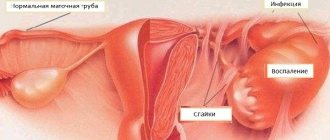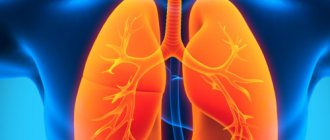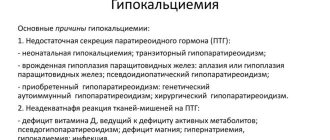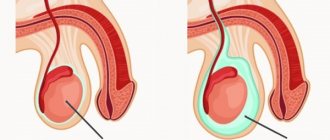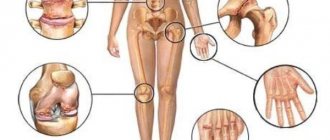Inflammation of the tonsils is a common disease that mostly affects children. But adults are not immune from it, especially if the person is under 35 years old. After this age, due to the final formation of the immune system, the tonsils cease to play their role as a protector of the body from infections, or even atrophy.
But still, there is a significant period of time when it is quite possible to “catch” this disease and feel all the unpleasant symptoms associated with it. In the article, we will look at the features of inflammation of the tonsils, find out what symptoms accompany it, and how to treat this disease in children and adults using medications and folk methods.
Causes of inflammation of the tonsils
Possible causes of inflammation of the tonsils
There are many causes of inflammation of the tonsils. Most often this disease occurs due to:
Hypothermia. Contact with infected sick people or objects. Focal inflammation in the nasal or oral cavity. Poor or untimely nutrition.
If a patient has purulent sinusitis, this in most cases leads to inflammation of the tonsils. Under harmful working or living conditions, which are characterized by dust or gas contamination, this disease can also develop. A common cause of the disease is contaminated unboiled water that a person drinks regularly. If the human body lacks vitamins or proteins, this very often leads to an inflammatory process.
People with weak immunity and low body resistance are most often affected by the disease.
The cause of the disease can be tonsillitis, which has a chronic form. It is a focal infection that occurs as a result of scarlet fever, sore throat, measles, etc. With the development of this disease, the mucous membrane of the pharynx and tonsils become inflamed. Inflammation of the tonsils in a patient may occur as a result of an acute form of tonsillitis. It occurs as a result of exposure to microbes: staphylococci, streptococci.
There are many reasons for inflammation of the tonsils, which directly depend on a person’s lifestyle and the performance of the immune system.
Symptoms
Signs of the disease
Inflammation of the tonsils is characterized by the presence of fairly extensive symptoms. With the development of this disease, most patients complain of aches throughout the body and general malaise. Also during this period, pain in the throat area is observed. Most patients experience a headache. Almost all patients with inflammation of the tonsils experience an increase in body temperature.
Signs of the disease are manifested not only by the patient’s physical condition, but also externally. When examining a patient by an otolaryngologist, he notices that the tonsils have changed their color. If the patient experiences an inflammatory process, the tonsils become bright red. The doctor also notices a significant increase in the size of the tonsils. In size, they resemble not almond grains, but walnuts. The tonsils are characterized by looseness. Most patients experience scar adhesions between the tonsils and arches of the palate.
When the disease appears, doctors can diagnose the appearance of a yellowish-white plaque and purulent plugs, which are characterized by an unpleasant putrefactive odor.
Under the human jaw there are lymph nodes that increase in size during the inflammatory process.
The patient can independently feel only part of the symptoms that give him discomfort. When they appear, the patient must see an ENT doctor.
Symptoms of sore tonsils
Inflammation of the tonsils is caused by viruses and has the following symptoms:
- pain when swallowing;
- sore throat;
- pain in temples;
- enlargement of the tonsils and the appearance of a white film on them;
- increased fatigue;
- lethargy of the body;
- pain in the kidneys, heart, muscles;
- heat.
If these symptoms are accompanied by general weakness in the body and high temperature, then purulent inflammation of the tonsils must be suspected. In this case, the tonsils become a hotbed of microbes such as streptococcus, staphylococcus, etc. From the tonsils they spread throughout the body and affect the functioning of vital organs, inflammatory processes occur, prostatitis, inflammation of the paranasal sinuses, and dysbacteriosis can develop. A person has a feeling of a foreign body in the throat.
If the tonsils become inflamed regularly and are accompanied by enlarged lymph nodes and intoxication of the body, then we can talk about the chronic nature of the disease. In this case, there are malfunctions in the functioning of the immune system, which leads to improper functioning of internal organs. Sometimes inflammation of the tonsils is accompanied by temporary loss of voice.
Symptoms of chronic inflammation of the tonsils
With chronic tonsillitis, the symptoms do not particularly bother the patient. But this does not mean that they do not need to be treated.
Chronic inflammation is accompanied by the following symptoms:
- sore throat when swallowing;
- Chronic tonsillitis;
- temporary absence of voice;
- headache;
- in some cases dizziness is observed;
- submandibular lymph nodes increase in size;
- high body temperature.
Symptoms for which you need to call a doctor:
- acute tonsillitis lasts more than two days;
- the patient's condition is constantly deteriorating;
- disruption of the respiratory system;
- uncontrolled secretion of saliva;
- difficulty eating and drinking.
If treatment is not started on time, the patient may begin to develop complications such as: cardiac rheumatism, glomerulonephritis, heart valve prolapse, peritonsillar abscess, pneumonia, hearing loss, and exacerbated allergic reactions.
Drug treatment
Treatment of pathology with sprays and tablets
Treatment of the disease directly depends on its causes. In most cases, it is aimed at eliminating the problem that caused the disease. Inflammation must be treated immediately after the first signs appear. Antibiotics and antiviral drugs are most often used for treatment using traditional methods.
Antibacterial drugs that are produced in the form of aerosols are quite effective. Such drugs include Ingalipt, Hepilor, Hexasprey, etc. During the treatment of inflammation of the tonsils, the patient must regularly dissolve throat tablets. Doctors recommend using Faringosept and Strepsils in this case.
Treatment of inflammation of the tonsils cannot be done without rinsing. Most often they are produced using Chlorophyllipt, Furazzilin.
As this disease develops, the patient’s body weakens, which is why it is necessary to take vitamins.
They are selected in accordance with the individual characteristics of the patient’s body. Treatment should be carried out only by the attending physician. This is explained by the fact that it is necessary to correctly select medications.
Treatment of bacterial infection
If the disease is caused by bacterial microorganisms, a course of antibiotic therapy is prescribed. The drug of choice is a drug that is active against pathogenic microflora. Therapy includes:
- Bed rest, lack of any physical activity.
- For bacterial infections, various antibiotics are used - Amoxicillin, Cephalexin. The duration of such treatment is determined by the doctor; you cannot prescribe medications yourself.
- If necessary, various antipyretics are used - Ibuprofen, Paracetamol.
- In some cases, a specialist may recommend taking antihistamines to reduce swelling in the throat.
- Medicinal sprays are often used, for example, Ingalipt, Hexasprey, Hexoral.
- You should use lozenges - Faringosept, Grammidin - they will help reduce pain and have an antibacterial effect.
- Rinses must be used during this period; Furacillin and Chlorophyllipt can be used for these purposes.
- The use of various traditional methods for treatment is allowed if they do not aggravate the disease.
If the tonsils become inflamed, warm compresses may be prescribed, and during the recovery period, a course of physiotherapy to stimulate regenerative processes in the nasopharynx.
If the specified treatment algorithm is ineffective and complications develop, especially with damage to the lingual tonsil, urgent hospitalization is indicated. In the hospital, in addition to enhanced medication, surgical methods of excision of the tumor and removal of suppuration can be used. The cryodestruction procedure has proven itself to be excellent - the effect of liquid nitrogen on the inflamed tonsils, which leads to the necrosis of infected areas of lymphoid tissue.
Traditional medicine in the treatment of inflammation
Traditional medicine tips for treating the disease
Many patients for the first time encounter such a condition as inflamed tonsils; they do not know what to do in this case. Very often traditional medicine helps to overcome the disease.
With the help of traditional medicines, not only the symptoms are alleviated, but the treatment process is also significantly accelerated:
When the tonsils are inflamed, you need to drink a lot of warm drinks. To avoid burns, it is necessary that they are not very hot. For drinking, it is best to use tea, which consists of viburnum, rose hips, chamomile, and lemon. If the patient has plaque or pustules on the tonsils, then they must be rinsed regularly. For this purpose, special antiseptic solutions are used. You can also prepare a medicinal rinse based on sea salt. To do this, take a glass of warm water and add a teaspoon of sea salt to it. The solution is stirred until the salt dissolves and used for gargling. A highly effective remedy is an iodine-based gargle. To prepare it, you need to take a glass of warm water, add a pinch of baking soda and sea salt and a few drops of iodine. This product is used to gargle three times a day. Ordinary honey has a high effect on inflamed tonsils. You should eat one tablespoon of it every day when the first signs of the disease appear. If inflammation is accompanied by the release of pus, then honey is added to medications that are used to gargle.
Traditional medicines are characterized by a high level of effectiveness in treating inflammation of the tonsils. Despite this, you should consult a doctor before using traditional medicine.
Symptoms and treatment of inflammation of the tonsils at home
Over the course of several centuries, folk healers have been able to accumulate many useful and effective recipes for relieving inflammation of the tonsils. Many recipes are approved by traditional medicine. First of all, it is necessary to brew warm herbal teas that increase immunity, providing an anti-inflammatory effect (rose hips, viburnum, black rowan, lemon, chamomile, sage, green tea). You need to rinse with the addition of decoctions of medicinal plants (propolis, clover, elecampane, aloe).
Use of antibiotics
Inflammation of the tonsils - antibiotics: types and applications
Treatment of the inflammatory process should be carried out with antibiotics. Most often, for inflammation of the tonsils, medications that belong to the penicillin group are used.
The most common applications are:
Ampicillin; Amoxicillin, etc.
These drugs belong to the category of semisynthetic antibiotics, which belong to the penicillin group.
Medicines block transpeptidase enzymes, which are located in bacterial membranes.
If the patient is contraindicated for the introduction of these drugs into the course of treatment, then they are replaced with Doxocycline, Cephalexin. These drugs belong to the category of semisynthetic antibiotics, which are intended for systematic use. They provide a bacteriostatic effect, as they have a detrimental effect on the protein synthesis of pathogens.
Useful video - Sore throat: causes and treatment.
If complications occur, the patient may be given intramuscular antibiotics. Regardless of the drug used for treatment, it should be taken for 7 to 10 days.
Possible complications
Treatment of inflammation of the tonsils should be done immediately after the first symptoms appear. Otherwise, patients may experience complications. Most often, this disease provokes deterioration in the performance of the heart and joints. In some patients, deterioration of the kidney condition is observed due to untimely treatment.
If the inflammation of the tonsils constantly spreads into the surrounding tissues, then their removal is prescribed. If the disease has a purulent process, then it can spread to the heart and lungs. This condition is very dangerous not only for the health, but also for the life of the patient.
When the purulent process spreads to the surrounding tissue, patients may experience a purulent abscess.
Inflammation of the tonsils is a rather dangerous disease that not only causes discomfort in patients, but can also cause serious complications. That is why it is necessary to carry out timely treatment of the disease only after consulting a doctor.
Share with your friends! Be healthy!
Probably every person has encountered the problem of inflammation of the tonsils. Previously, doctors found only one way out - surgery. Modern medicine and traditional methods make it possible to relieve pain and inflammation without surgery. To relieve the symptoms of the disease yourself, you need to know how to treat inflamed tonsils.
Symptoms
Inflammation of the tonsils: symptoms in adults and children:
- Cutting pain when swallowing.
- Large tonsils (swollen) on one side of the pharynx or on both sides at once.
- Tonsils hurt.
- If a child or an adult develops a high temperature in the evening.
- Tonsils hurt when talking. Also, a sick person may completely lose his voice.
- A white film forms on the tonsils.
- Weakness, ailments and loss of energy.
- Adults often experience headaches, especially at the level of the occipital cerebellum.
- Pain in the kidneys, heart, as well as muscles and joints.
- Increased blood pressure.
- The occurrence of dysbacteriosis and skin rashes due to the spread of infection throughout the body.
Causes and symptoms of inflammation of the tonsils
Inflamed tonsils are a sign of tonsillitis!
Inflammation of the tonsils can be caused by a number of reasons. But all of them are associated with infectious microorganisms that affect the mucous membrane of the tonsils. The most common cause is bacterial tonsillitis. To confirm the diagnosis, it is important to contact a medical institution, since sore throat can only be accurately determined by a blood test.
In children, so-called herpetic sore throat most often occurs. This is an infectious disease that is transmitted by airborne droplets. Sore throat causes an inflammatory process in soft tissues. In this case, a white or beige-yellow coating forms on the surface of the tonsils.
In the case of purulent tonsillitis, patches of pus appear on the tonsils, which provoke inflammation.
As a rule, all people develop immunity to bacteria and microbes from childhood. But if a large number of microorganisms (staphylococci or streptococci) enter the body at the same time, and a person’s immunity is weakened at this time, then they settle on the mucous membranes of the respiratory system and begin to multiply intensively, provoking inflammation, pain and the development of various diseases.
Another cause of inflammation of the tonsils may be laryngeal cancer. This is a disease caused by the formation of a malignant tumor. It is represented by four stages. In the first and second stages there are practically no symptoms, but during development the voice begins to shrink, the tonsils begin to ache and become inflamed. In this case, medical attention is necessary, since in case of cancer it is almost impossible to cure inflamed tonsils at home.
Provoking factors and causes
The most common provoking factors that lead to inflammation of the tonsils are acute respiratory infections with the following pathogens:
- Pneumococcus;
- streptococcus;
- staphylococcal bacillus.
It is also important to note the susceptibility of people to this disease during certain seasons of the year, since the occurrence of inflammation of the tonsils is greatly influenced by excessive hypothermia of the body. Most often this happens in autumn and winter.
Other reasons for the onset of the inflammatory process in the tonsils include:
- Deterioration of immune function.
- The presence of chronic infection in the throat and mouth (caries, stomatitis).
- Anatomical pathologies of the structure of the oropharynx. For example, if a person has a deviated septum, this will lead to improper breathing. Because of this, cooled air will not pass through the nasal passages, but directly through the mouth.
- Epstein virus.
- Bara virus.
Medical treatment and antibiotics
Throat spray - convenient and effective!
Since inflammation of the tonsils is caused mainly by infectious diseases, the appropriate treatment method must be selected.
Most often these are antibacterial drugs that in a matter of days will destroy the cause of inflammation - streptococci or staphylococci. Although antibiotics have a number of side effects, they are the only ones that will completely destroy viruses. Antibiotics should be taken strictly as prescribed by the doctor. For tonsillitis or sore throat, you must take an antibiotic for at least five days.
The most common antibacterial agents:
Amoxiclav, which contains the active ingredient amoxicillin. This is a broad-spectrum drug aimed at destroying foci of infectious bacteria. The course of treatment is 7-10 days. Amoxicillin, Augmentin are broad-spectrum bactericidal tablets. The course of treatment is up to 12 days, under the supervision of a specialist, since this drug has many side effects. Vilpfaren is available in tablet form. The main component is josamycin, which kills bacteria.
In addition to tablets, you can use sprays that are designed specifically for a sore throat. These are antibiotics for topical use:
Tantum Vrde Bioparox Hexasprey
There are also many drugs without antibiotic action. They are aimed at relieving the inflammatory process, facilitating breathing and swallowing:
Kamiton AntiAngin Ingalipt
Whether it is necessary to use antibiotics for an inflammatory process in the tonsil area or whether simple antiseptic drugs can be used can only be determined by a specialist, depending on the condition of the throat and test results.
Gargling
The gargling procedure must be performed correctly!
An excellent addition to the use of tablets would be gargling. This procedure helps to soothe irritated tonsils, relieve inflammation, swelling and pain.
For rinsing, you can use formulations purchased at the pharmacy or prepared yourself. The best thing to remember is that you cannot use a solution that is too hot, so as not to damage your already irritated throat.
The most effective “talkers” for rinsing tonsils:
For 250 ml. water you need to take salt and soda 5 grams (1 tsp) and three drops of iodine. Mix everything thoroughly and gargle up to 8 times a day. This method has no contraindications. It can be used by children, adults and pregnant women. Hydrogen peroxide. You need to dilute a spoonful of peroxide in a glass of warm water and gargle with the resulting mixture. It has a disinfecting and healing effect. Chlorophyllipt, purchased at a pharmacy, is an excellent remedy for inflammation of the tonsils, regardless of the cause of the disease. They do not gargle, but “wipe” them. You need to wrap gauze or a piece of clean cotton cloth around a stick (pencil) and wipe the inflamed tonsils. The oil base of the drug makes it possible to penetrate deep into the source of inflammation and act directly there. Herbal decoctions. Medicinal plants are great for gargling. Chain, calendula, chamomile, sage are those that have soothing, antiseptic, anti-inflammatory, analgesic and regenerating properties.
It is necessary to alternate gargles throughout the day. Thus, the pain syndrome subsides within 2-3 days. It is important to remember that there is a complex treatment, and in addition to rinsing, it is important to kill the germs that caused the disease.
Inhalations
Inhalation with a nebulizer is a modern method of treating sore throat.
Inhalation has long established itself as an effective method for many diseases. It has the following properties:
significantly shortens the duration of the disease by 80% reduces the risk of complications relieves symptoms of the disease - inflammation, sore throat, makes breathing easier, thins mucus in the bronchi and speeds up the healing process
When inhaled, vapors with beneficial substances penetrate directly into the source of inflammation, due to which they have an antibacterial effect: they destroy pathogens, preventing them from multiplying.
Inhalation has a number of contraindications and precautions that are important to follow in order not to cause harm:
at elevated body temperatures, it is strictly forbidden to use an inhaler; in acute forms of tonsillitis; with frequent nosebleeds, you must be extremely careful when using an inhaler during pregnancy; thermal procedures are prohibited
In addition, it is important to make sure that there is no allergic reaction to the components that will be poured into the inhaler.
More information on how to treat a sore throat at home can be found in the video:
For the procedure, you can use a special device - a nebulizer or inhaler. If this is not the case, you can use a regular pan, over the steam of which you need to breathe hot air.
When using a nebulizer, you can use medications:
Essentuki mineral water or saline solution. Their vapors relieve swelling and fill soft tissues with vitamins and minerals, which restore intracellular processes and quickly eliminate pain; alcohol tincture of calendula, sophora or eucalyptus has an antiseptic and anti-inflammatory effect. Miramistin is a strong antiseptic drug. It can be used in its pure form for adults or diluted 1/1 with saline for children under 12 years of age Furacilin - has a disinfecting effect, eliminates pockets of microbes, and eliminates swelling
To use the inhaler, you can prepare solutions or decoctions yourself:
Add two tablespoons of propolis tincture to 500 ml of water. This method relieves inflammation, swelling and has a disinfecting and healing effect. Calendula, chamomile and sage flowers are poured with boiling water and infused for 10 minutes. This decoction has a wide range of actions aimed at recovery. Use the inhaler up to 4 times a day
Drug therapy
Many people wonder how to treat inflammation of the tonsils, because it is impossible to determine “by eye” what kind of infection was the causative agent of the disease. To do this, you should definitely take smears from the source of the disease - the tonsils themselves. After this, the doctor will prescribe antibacterial and disinfectant gargles, as well as drugs to relieve pain and fever.
Gargling plays one of the most important roles in this treatment process, since in a purely mechanical way the patient will wash away pathogenic bacteria from the larynx, which is inflamed. To do this, you need to use solutions of boric acid (1 teaspoon per glass of water), a solution of furatsilin (1 tablet per 200 mg of water), as well as 10 drops of chlorophyllipt per 250 mg of water.
Inflamed tonsils often cause discomfort in the throat and acute pain, so to get rid of these symptoms, various dragees and lozenges are used, which have an antiseptic and analgesic effect.
Tablets called Faringosept are considered very effective for this purpose. For adults and children over 7 years of age, the permissible daily dose is 5 tablets, which must be dissolved every three hours. Faringosept is a fairly safe drug that can be used as directed even during pregnancy and breastfeeding.
Another resorption drug is called “Doctor Theiss Angi Sept”. It contains anethole, menthol, mint oil and alcohol. Thanks to such components, the patient who is treated with it gradually decreases pain, laryngeal swelling and inflammation subsides.
The daily dose for adults and children over 12 years of age is 4 tablets. Admission to children under five years of age, as well as pregnant women, should be previously discussed with the attending physician.
In more advanced cases of tonsillitis, the following antibiotics are prescribed:
- Amoxicillin. This is a drug with a broad bactericidal effect. Amoxicillin tablets are prescribed for adults and children over 12 years of age 3 times a day. The general course of therapy is two weeks. Contraindications for use include pregnancy, lactation, renal and heart failure.
- Amoxiclav. This is an antibiotic that contains amoxicillin and clavulanic acid. For adults and children over 12 years of age, take 1 tablet every 8 hours. The general course of therapy is ten days.
- Vilprafen. This is an antibiotic of the macrolide group, the main active ingredient of which is josamycin. A child needs to take one tablet per day, and an adult – two tablets. The course of therapy is determined by the attending physician.
Analogues of the above antibiotics, which are also often used to treat tonsillitis, include:
- Augmentin;
- Amosin;
- Alemoksin.
For local therapy, drugs in spray form are used:
- Inhalipt;
- Bioparox;
- Tantum Verde;
- Bioparox;
- Cameton.
Traditional medicine methods
Kombucha - an effective folk remedy for sore throat
In addition to medical treatment, you can use traditional methods. To relieve inflammation of the tonsils at home, there are several proven and effective methods:
To gargle, you need to prepare a garlic infusion: squeeze 200 grams into a glass of boiling water. garlic and leave to infuse for 10 hours. Strain and warm the kombucha before use. The weekly infusion must be taken orally warm every one and a half to two hours. It has a disinfecting effect, as a result of which the swelling of the tonsils subsides. Honey should be mixed with butter and taken a teaspoon three times a day. This method will soften the throat, relieve pain in the tonsils and make swallowing and breathing easier.
For sore throat, acute respiratory viral infection, tonsillitis and other infectious diseases that cause inflammation of the tonsils, you need to drink a lot. These can be teas, but not hot ones, fruit drinks, decoctions of herbs or berries, warm milk with honey. As a decoction you can use: chamomile, calendula, sage, rose hips, plantain, honey, propolis, aloe. The main thing is to take precautions and take into account individual intolerances. Honey, for example, is a healing component for many ailments, but at the same time it is a strong allergen.
Share with your friends! Be healthy!
Is it possible to treat inflammation of the tonsils at home? Every person faced with a problem thinks about this question.
In fact, it is possible, but with minor degrees of severity. Medicine recommends that you always contact a clinic to establish an accurate diagnosis, since some symptoms of inflammation of the tonsils may be signs of a completely different disease.
And after that, you can safely use products that effectively fight viruses.
How to properly treat inflammation of the tonsils with folk remedies?
There are a lot of different folk recipes that can effectively fight tonsillitis. First of all, these are solutions for gargling.
The simplest solution for rinsing is a solution of salt, soda and water. With the help of this remedy, the tonsils are cleared of purulent plaque, and even the pain is relieved. In order to prepare a simple solution for rinsing, you need to take a glass of warm water, and pour one teaspoon of salt and soda into it, stir thoroughly. Add 5 drops of iodine to the solution.
You can use another gargling solution that can significantly reduce sore throat. To create a solution, squeeze the juice from half a lemon into one glass of warm water. In the case of various forms of inflammation of the tonsils, a variety of infusions can be used, made with medicinal herbs such as St. John's wort, sage, chamomile, calendula, stinging nettle, orchis, yarrow, plantain, eucalyptus. Moreover, the recipe for preparing such a solution is the same: add one tablespoon of dry herb to one glass of boiling water. You can take more than one herb, but several, but the total volume should still be one tablespoon. The herb and water must be put on fire and brought to a boil. After this, cover with a lid and let it brew until the solution is at a comfortable temperature. Strain and then rinse. Moreover, the more often you rinse, the better.
You can relieve inflammation of the tonsils with honey or other bee products. Of course, the ideal option is to eat one teaspoon of honey at the very first signs of a sore mouth. But honey can also be added to solutions prepared for rinsing if the patient has a purulent sore throat. Propolis helps a lot, because its medicinal bactericidal properties are not inferior even to antibiotics. It should also be added to rinsing solutions at the rate of 20 drops (if the tincture is alcoholic) per 100 ml of liquid. As practice shows, three rinses in one day will be quite sufficient, and the disease will begin to recede. If the tonsils are inflamed, you can chew the honeycomb, which was taken along with the bar (this is the lid of the honeycomb). This procedure should be done once a day for 15 minutes. The powerful antibacterial properties of these bee products are especially active in the treatment of inflammation of the lingual tonsil. Indeed, in this case, rinsing does not always help.
In the same case, if children have tonsillitis - chronic inflammation of the tonsils - then you can use a mixture consisting of one part aloe juice and three parts liquid honey.
It is best to take flower honey. This mixture should be lubricated on the tonsils once a day for at least two weeks. CONTACTS
Characteristics of inflammation of the tonsils
The tonsils, also known as tonsils, consist of lymphoid tissues. Their location is the oral cavity in the area of the soft palate and the root zone of the tongue.
Their task is to have a protective function . This is a kind of barrier due to which pathogenic microorganisms do not penetrate inside the body.
Inflammation occurs when too many of these viruses accumulate in the tonsils or when the immune system is weakened.
In the second case, a small amount of bacteria is enough for inflammation. Disease of the tonsils is classified as infectious . Moreover, among pathogenic microorganisms one can distinguish not only viruses and bacteria, but also fungi.
Peculiarities
Most often, inflammation of the tonsils is observed in children, but it also occurs in adults. Pathology has three main forms, each with its own severity and duration:
The catarrhal form is characterized by discomfort in the throat, burning and soreness. Pain when swallowing is minor, sometimes body temperature rises, but not higher than 38 degrees. A medical examination reveals swelling and a small coating of mucus or pus. The lymph nodes in the neck and jaw also become enlarged. This is where the pain is felt. The follicular form is characterized by an increase in body temperature above 38 degrees. This leads to general weakness, body aches, chills and even pain in the lumbar region. Eating food becomes impossible, as when swallowing severe pain occurs, which is transmitted to the ear. Accordingly, the lymph nodes are enlarged. Preschool children may experience diarrhea and vomiting. The lacunar form is distinguished by the severity of the disease and the most pronounced clinical picture. The tonsils are greatly enlarged, the coating is yellow-white. Hospitalization is required even if the disease occurs in adults.
Causes
The tonsils can become inflamed due to the development of certain diseases when affected by the following pathogenic microorganisms:
staphylococcus; streptococcus; Pneumococcus; herpes virus; yeast fungi.
The inflammatory process is provoked by the following factors:
hypothermia and colds; infection from a sick person; decreased immunity; tonsillitis, scarlet fever and other pathologies of the respiratory system; genetic predisposition; infection due to non-compliance with personal hygiene rules; diseases of the oral cavity and nose (sinusitis, caries, periodontal disease, etc.); avitaminosis.
Sore throat - inflammation of the tonsils
Symptoms
swollen lymph nodes; increased body temperature; pain when swallowing and palpation of lymph nodes; redness of the tonsils; presence of plaque; the voice becomes hoarse, and in rare cases disappears altogether.
What diseases cause inflammation of the tonsils?
As already mentioned, inflammation of the tonsils (or tonsils) usually occurs as a result of bacterial tonsillitis, and in several of its types. That is why the intensity of the resulting inflammatory process will be different.
If a patient is diagnosed with catarrhal tonsillitis, the main symptoms will be a burning sensation and sore throat, as well as mild pain when swallowing. The temperature does not rise much - 37.3 - 37.5 0 C. The tonsils swell a little, and in some areas there is a purulent-mucous coating. The mouth is constantly dry, the tongue is completely coated. Lymph nodes - submandibular and cervical - are slightly increased in size.
If the patient has follicular tonsillitis, then his body temperature rises quite sharply. All the main signs of intoxication are felt in the human body - the body is aching, it is chilling, it is in a state of complete weakness. There is a severe pain in the throat, which can even radiate to the ear. The lymph nodes look much worse than with catarrhal tonsillitis, and when palpated they become painful. Follicles become visible on the tonsils - light yellow bubbles with pus. If such a disease occurs in a child, it may be accompanied by vomiting and diarrhea.
All of the above symptoms are even more pronounced in lacunar angina. The tonsils are greatly enlarged and almost completely covered with plaque. The course of this disease is noticeably more severe than the types of sore throat described above.
Treatment options
Before treating inflammation of the tonsils, it is necessary to establish the cause of the disease and identify the causative agent. Only a doctor can do this.
After all, for each microorganism there are certain medications. Therefore, contact the clinic immediately!
Treatment technique
What to do in case of inflammation of the tonsils is mandatory:
First of all, the patient needs to get rid of unpleasant symptoms and wash away pathogenic microorganisms from the microflora of the mucous membranes, preventing their development and growth. Antiseptic solutions are used for this . Approximately 30-40 minutes after rinsing the mouth, it is necessary to lubricate with iodine-based medicinal substances . This could be Lugol's solution. Be careful, the drug may cause an allergic reaction! It is imperative to take antibiotics, antibacterial agents and anti-inflammatory drugs . If there is an underlying disease, it is important to provide high-quality treatment. For example, if you have a sore throat, you will have to take anti-sore throat medications. The patient needs to be isolated , since inflammation of the tonsils is an infectious disease. Maintaining bed rest. Drinking plenty of fluids is necessary . In this capacity, you can use tea and decoctions of medicinal herbs. Inhalations will also be useful.
Pharmaceutical rinsing solutions
Modern medicine knows exactly what to gargle with when the tonsils are inflamed. These are pharmaceutical solutions:
"Furacilin" can be bought in tablets or ready-made solution. If you have tablets, then dilute 1 unit in 0.5 glasses of water. "Lugol" is considered a strong antiseptic, but dilates blood vessels. "Miramistin" is used for almost all types of pathogenic microorganisms. “Iodinol” contains the main active ingredient – iodine. "Chlorhexidine" is created on the basis of chlorine. "Chlorophyllipt" is prescribed for infection with staphylococci. Hydrogen peroxide is used extremely rarely. Diluted with water in a ratio of 1: 2. “Hexoral”, “Rivanol” and so on.
The most effective medications
How to relieve inflammation of the tonsils using drug therapy and is it necessary? Many people don’t want to take medications, but it is necessary. Because it is drug therapy that is the main one in the whole complex of treatment.
List of the most effective and popular drugs:
"Bioparox" is produced in the form of an aerosol. Very convenient for treating children from 2-3 years old. The drug has antibacterial, antifungal and anti-inflammatory properties. Contraindications – allergies to components, bronchospasm. "Tantum Verde" belongs to the non-steroidal anti-inflammatory group. Restores the structure of the mucous membrane. Used by children from 6 years of age. Contraindications – phenylketonuria, intolerance to components. Stopangin has a complex effect: relieves pain, eliminates inflammation, destroys fungi and bacteria. It is produced in the form of an aerosol and a medical solution. Children can use from 8 years old. Contraindications: pregnancy, atrophic pharyngitis. Faringosept has a comprehensive effect and is an antiseptic. Available in the form of absorbable tablets. Can be used from 3 years of age. Contraindications: only individual intolerance to one of the components. "Tonsilotren" refers to a homeopathic remedy. It has immunomodulatory and anti-inflammatory properties. The tablets can be dissolved from one year of age. Falimint relieves pain and destroys bacteria. Acts locally. Produced in the form of absorbable tablets. Allowed for use from 5 years of age. Contraindications: pregnancy, breastfeeding, allergy to components. "Tonsilgon" is used starting from birth. Available in the form of tablets and drops. It is considered an anti-inflammatory antiseptic. Antibiotics: “Sumamed”, “Amoxicillin”, “Amoxiclav”, “Augmentin”, “Vilprafen”, “Amosin”, “Kameton”, “Alemoxin” .
Antibiotic drugs are allowed to be used only as prescribed by a doctor!
Remember, each organism has individual characteristics, and inflammation of the tonsils has its own course of the disease. What is suitable for one patient may be contraindicated for another.
Treatment with folk remedies
Treatment with traditional medicine is always included in the complex of therapy, because medicinal herbs and other components have many useful substances.
But remember, before treating inflammation of the tonsils with such means, be sure to consult your doctor!
Rinse solutions
Here are some recipes for the most effective solutions for gargling:
Herbal decoctions restore the microflora of the mucous membrane and have a softening effect. You can make a collection of chamomile, calendula, elderberry and sage. Take 1 tbsp. l. collection, pour a glass of boiling water and let it brew. Rinse 3-4 times a day. Potassium permanganate solution has been used for decades. It disinfects and neutralizes bacteria, heals damaged tissue. You should rinse with a manganese solution strictly according to the doctor’s recommendation, as in some cases it causes burns. Soda-salt solution . For 1 tbsp. l. kitchen salt you need to take the same amount of soda and 10 drops of iodine. It is advisable to add a spoonful of sea salt. It is prohibited to use such a solution for pathologies of the endocrine system. You can make a remedy from apple cider vinegar . For 1 glass of water, it is enough to put 1 tsp. vinegar. To destroy the infection and saturate the oral cavity with vitamins, prepare a garlic solution . Chop a couple of cloves of garlic and pour a glass of boiling water. Let it brew. Remember, this solution cannot be used in the initial stages (garlic causes irritation to dry mucous membranes). Extract the juice from fresh beets . In the amount of 4 tbsp. Combine spoons with boiled water (cup). You can rinse the cavity with strong green tea . Pour 1 tsp into a glass of drink. kitchen salt, stir. Rinse up to 5 times a day. Dry and chop the pomegranate peel . Combine 1 tsp. the resulting powder with 200 ml of boiling water. Leave in a thermos for 1 hour. Rinse 2-3 times a day.
Decoctions and warmings
During illness, you need to drink a lot of fluids, but you need to drink healthy drinks:
herbal decoctions; rosehip compote; tea with lemon and honey; warm water with lemon; warm fruit drinks and juices.
Warming the lymphatic tissue reduces swelling and relieves pain . To do this you can use the following:
heat the kitchen (coarse) salt. Pour it into a fabric bag and apply it to the inflamed area. But keep in mind that the salt should not burn; Mustard plasters are also perfect; be sure to steam your feet in a solution of sea salt or dry mustard; Try to keep your feet warm and wrap a wool scarf around your throat.
Other traditional medicine recipes
Be sure to use honey . It can be eaten plain or added to tea, decoctions, or inhalations. Vodka compresses help a lot . If you have pure alcohol, then dilute it with water so that you get a maximum of 50 degrees. Soak a piece of soft cloth in vodka and apply it to the fireplace. Please note that if the skin is hypersensitive, the compress can be placed through polyethylene. This recipe is most recommended for young children. Take some warm cottage cheese, grind it with boiled potatoes and wrap everything in gauze. Apply to your throat until it cools completely.
Inhalations
Our great-grandmothers also used inhalations. Considering them an effective remedy in the fight against many diseases of the respiratory system.
But is it possible to warm the tonsils during inflammation? There is no definite answer, since only a doctor can authorize inhalation, based on indications.
In addition, you need to know that at high temperatures, steam procedures are contraindicated . Therefore, inhalation can be done only in the absence of heat in the body.
Peculiarities
Inhalations can be carried out in several ways:
Using special devices - inhalers and nebulizers. The most modern device is a nebulizer. Steam can be inhaled directly above the container. You can use a teapot spout, a paper funnel, or a kitchen watering can.
Inhalations have many benefits. For example, if you use a medicinal solution by inhaling it warm, the beneficial substances penetrate into the deeper lacunae of the tonsils, providing the maximum healing effect.
Also, during inhalation, medicinal substances are distributed more evenly, which leads to the fastest action of the drug.
Rules for the procedure
You need to know how to properly do inhalations for inflammation of the tonsils:
you can inhale vapors only through the mouth, and exhale through the nose; you cannot use the same solution twice; After the procedure, it is advisable to sit in a warm place; you should not eat for an hour after the procedure; if you use a nebulizer, the inhalation time should not exceed 10 minutes; when using steam inhalation using traditional methods, the procedure increases to 15 minutes; It is strictly forbidden to inhale steam if there is a high body temperature, certain diseases of the heart, circulatory system, cancer and high blood pressure.
What to do with inhalations
Inhalations can be done using the following means:
Medical solutions are poured into the inhaler (they were mentioned above). Soda solution with iodine . Dissolve a couple of tablespoons of soda in 0.5 liters of water. Add some iodine. Alkaline mineral water is effective for babies. Essential oils : juniper, pine, fir, eucalyptus, anise, fennel. Add a few drops of oil to boiling water. Can be added to soda solution. Decoctions of medicinal herbs . You can use herbs: chamomile, eucalyptus, fir, mint, thyme, oregano, etc. You can inhale the vapors of boiled potatoes . To enhance the effect, add a little iodine and soda. A decoction of pine buds helps a lot .
Remember that untimely contact with a specialist or improper self-treatment leads to serious complications and unpleasant consequences.
One of these is surgical removal of the tonsils. Many people faced this procedure in Soviet times. .
Today, surgery is carried out using innovative methods. But you should think a thousand times before lying on the operating table. After all, the tonsils act as a protective barrier!

